BSBLDR403: Leading and Managing Teams in Construction Projects
VerifiedAdded on 2023/05/29
|6
|1185
|70
Homework Assignment
AI Summary
This BSBLDR403 assignment delves into the critical aspects of team leadership within the building and construction industry. It addresses essential considerations when allocating tasks, such as individual capabilities and goal alignment, and emphasizes proactive conflict resolution strategies, including the removal of disruptive individuals when necessary. The assignment explores methods for building team morale through improved working conditions, rewards programs, and open communication. It highlights the importance of supporting team members facing personal challenges and identifies key traits of effective leaders, such as responsibility, clear communication, and strong organizational skills. Furthermore, it underscores the significance of a well-defined team plan with clear goals, roles, and responsibilities, and examines various communication methods for disseminating information. The assignment also stresses the importance of managing differing personalities, motivating leaders, and fostering a culture of feedback and shared responsibility within the team, ultimately aiming to enhance team effectiveness and project success. Desklib provides access to similar solved assignments and resources for students.
1 out of 6
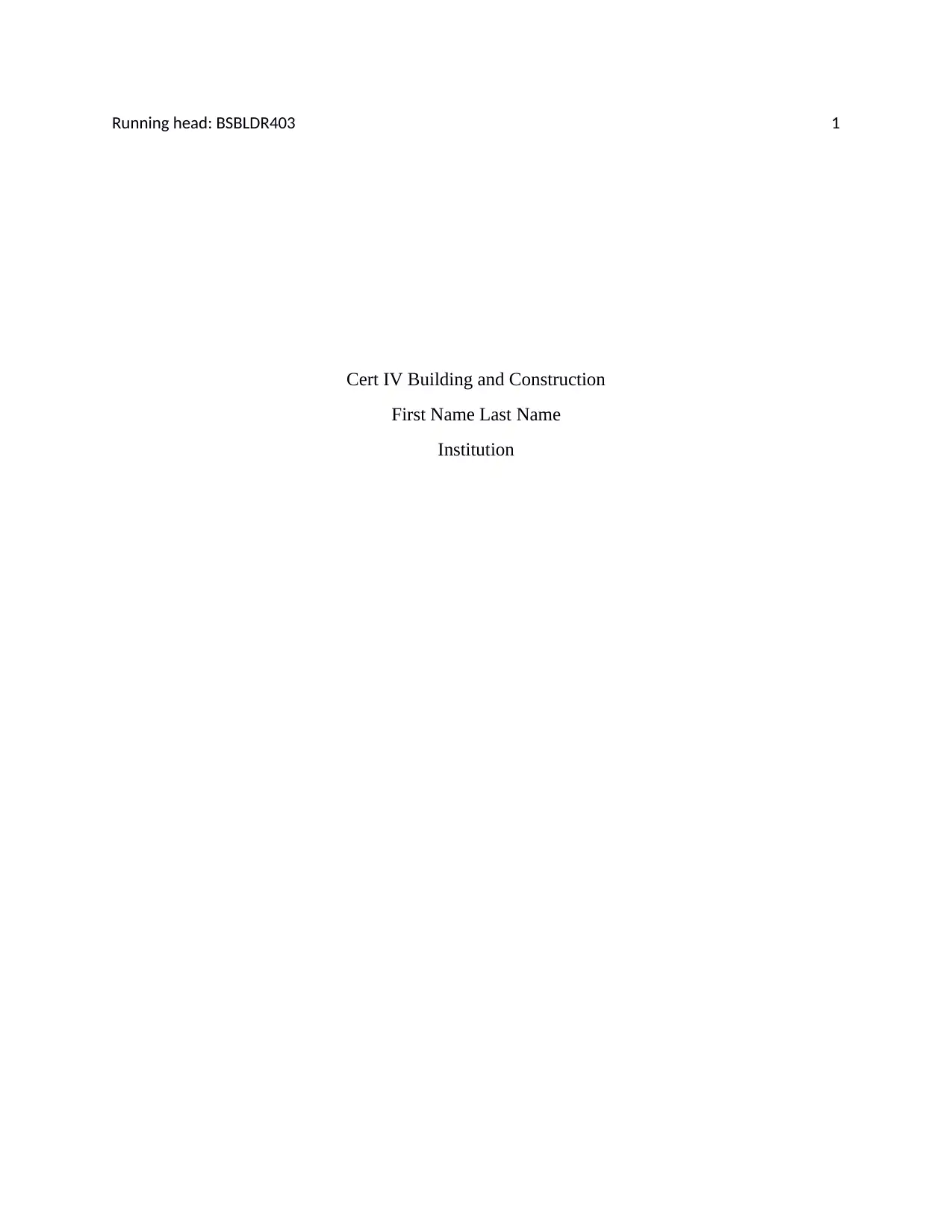
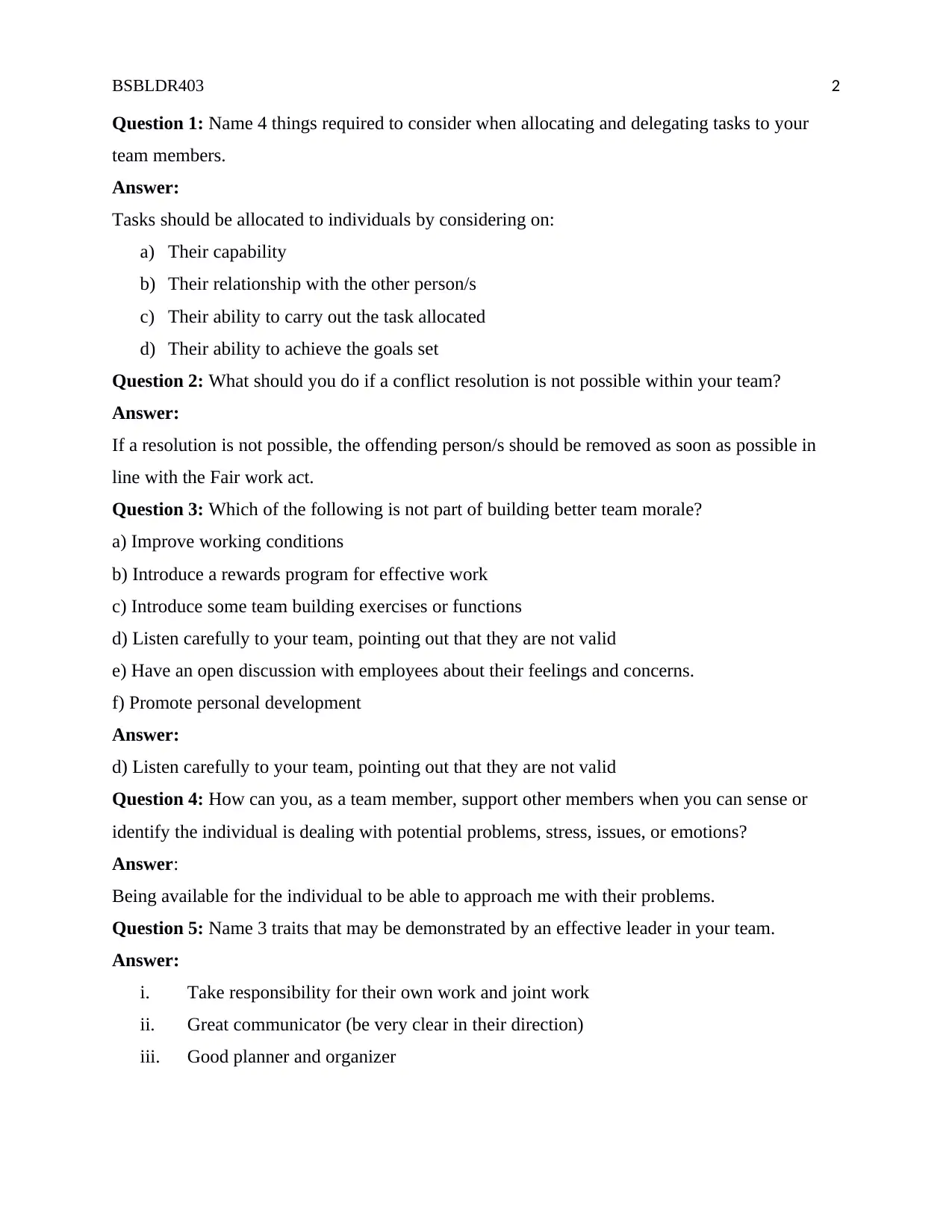
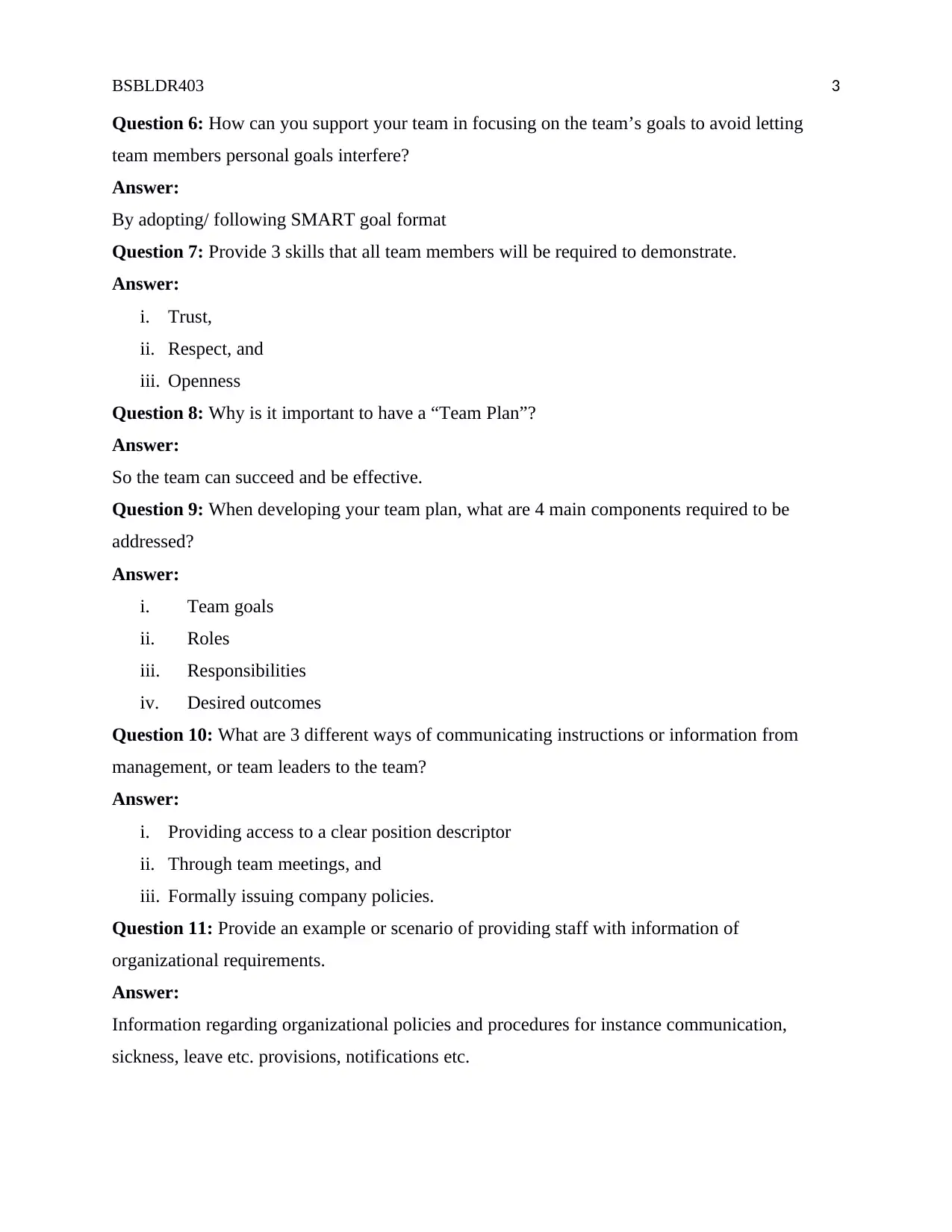

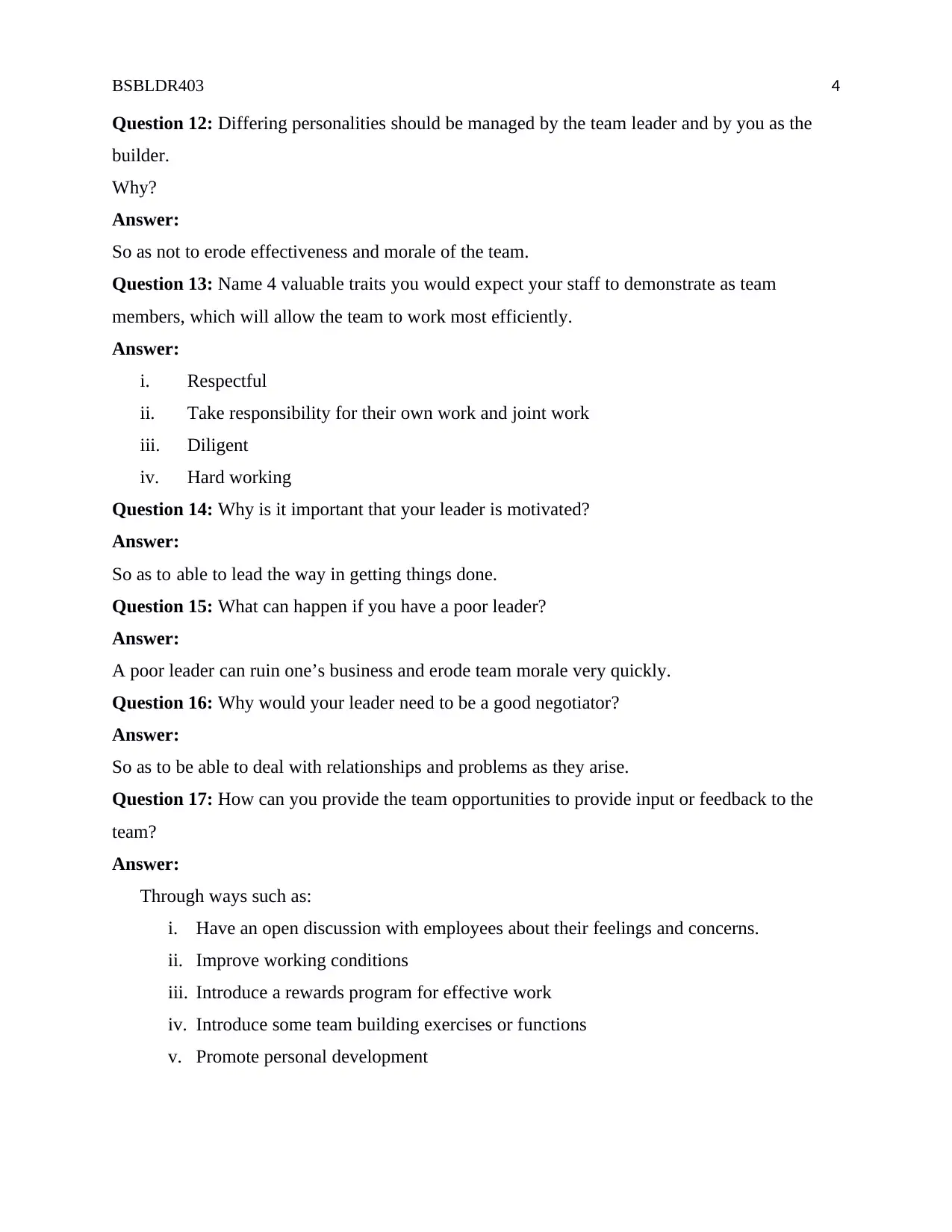
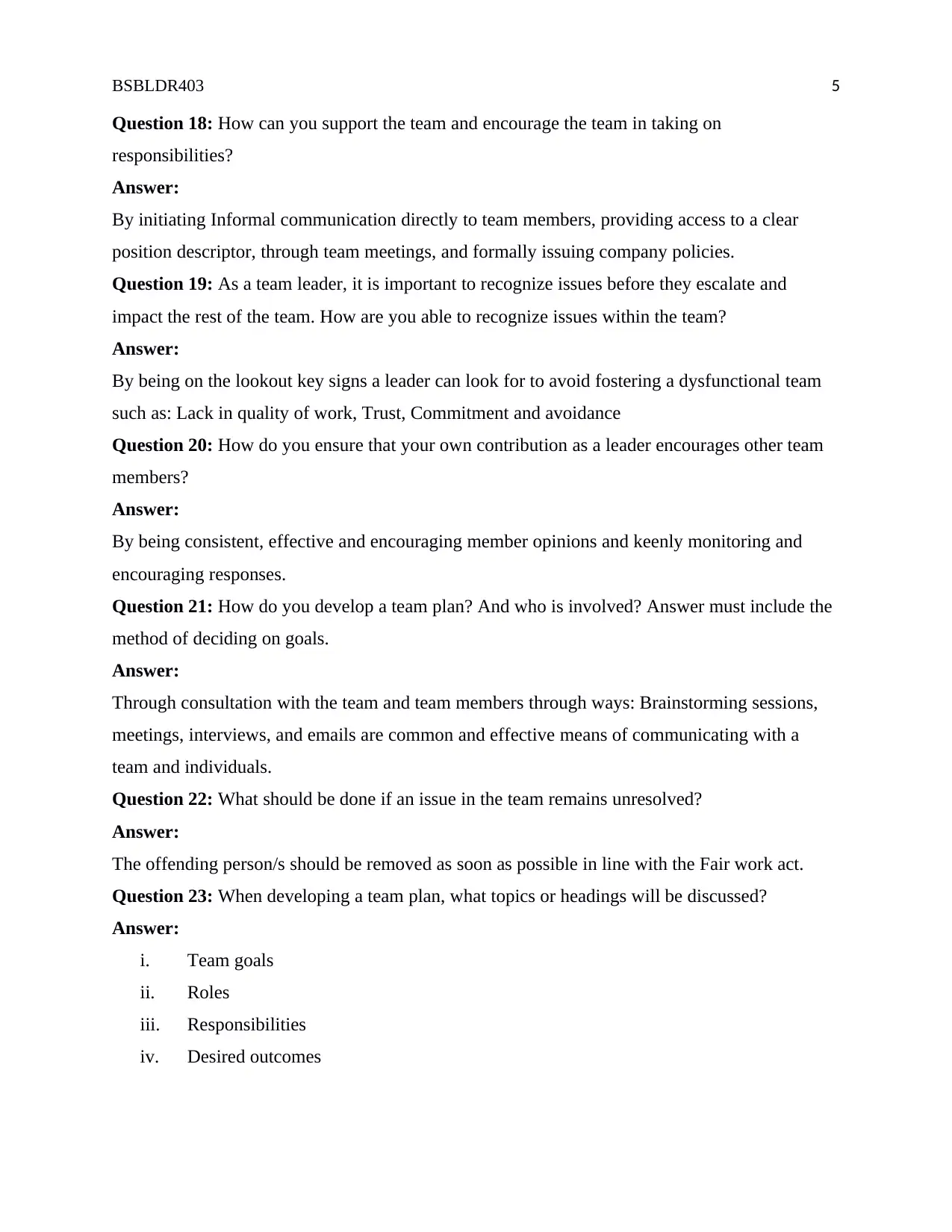







![[object Object]](/_next/static/media/star-bottom.7253800d.svg)